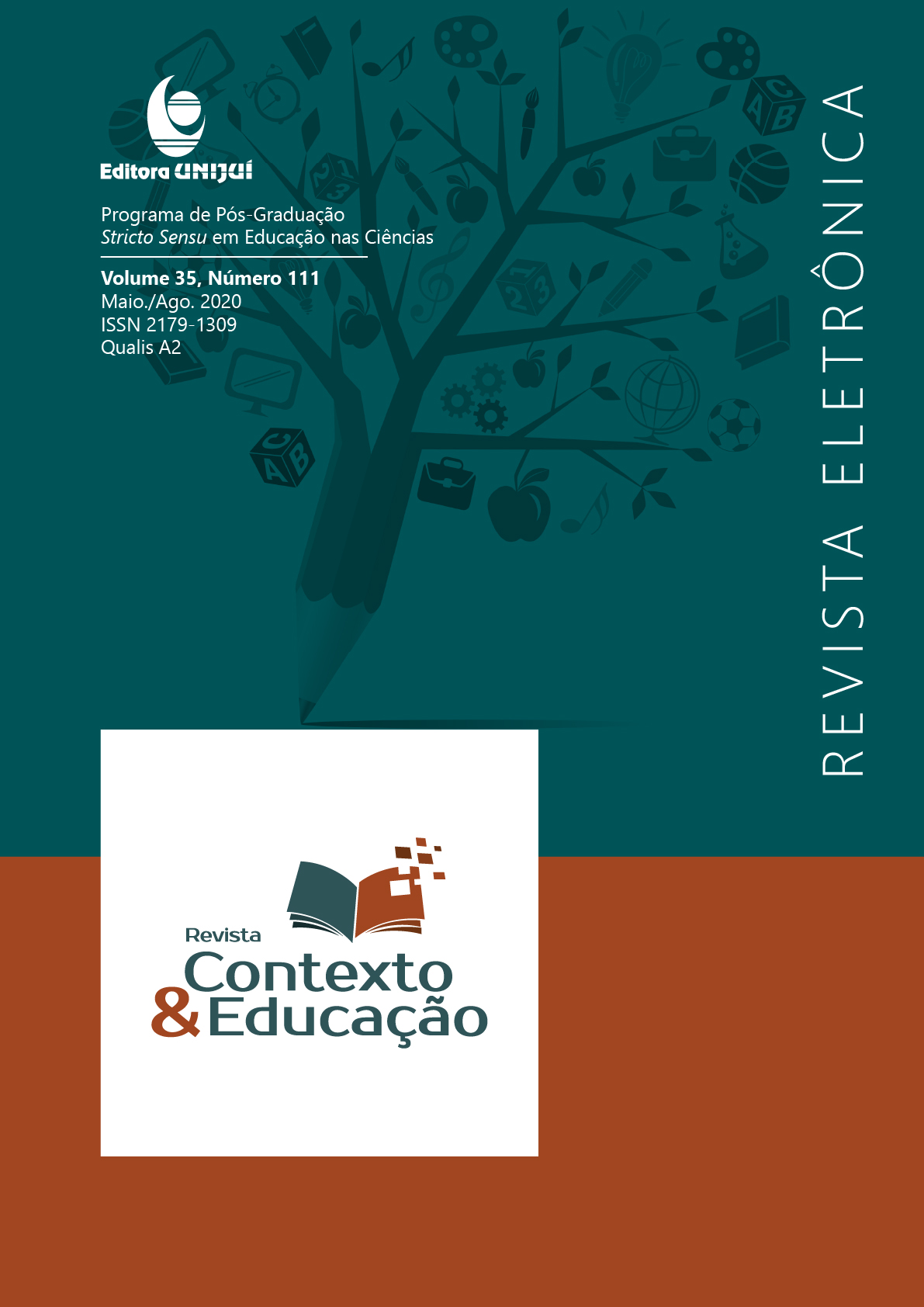PROGRESIÓN DE LAS IDEAS DEL PROFESORADO EN FORMACIÓN SOBRE LAS PRÁCTICAS DE CAMPO EN UNA SECUENCIA DE APRENDIZAJE
DOI:
https://doi.org/10.21527/2179-1309.2020.111.259-271Keywords:
Prácticas de Campo; Formación Inicial; Enseñanza de la BiologíaAbstract
Las Prácticas de Campo adquieren un valor especial en la enseñanza y aprendizaje de la Biología pues permiten al alumnado abordar su objeto de estudio, «lo vivo», lo más cerca posible a sus condiciones naturales, con una perspectiva sistémica y holística que les permite comprender la relaciones que conforman el fenómeno viviente en conjunto con su ambiente, así como potenciar el aprendizaje del conocimiento biológico, destrezas y habilidades del trabajo de campo y sobre todo favorece la adquisición de actitudes sobre el cuidado de los ecosistemas; pese a esto, son escasas las investigaciones sobre la incidencia de las Prácticas de Campo en la formación inicial del profesorado y más aún en la construcción de su saber profesional docente. Realizamos aquí una investigación con 27 docentes en formación del Programa de Licenciatura en Ciencias Naturales y Educación de la Universidad Surcolombiana (Neiva-Colombia). El estudio es de tipo mixto, prospectivo y longitudinal, empleando análisis de contenido y los Software SPSS y Atlas.Ti. Para el caso de este artículo, se presenta el análisis de la aplicación de un pre y postest; mostramos respuestas de los futuros docentes y el valor estadístico de la t-student al comparar ambos momentos. El estudio pone de manifiesto la contribución de un seminario formativo en la progresión de las concepciones del profesorado en formación sobre la naturaleza de las Prácticas de Campo, sus finalidades de aprendizaje, su planificación y el aporte a la formación docente.
Downloads
Published
How to Cite
Issue
Section
License
By publishing in Revista Contexto & Educação, authors agree to the following terms:
All works are published under the Creative Commons Attribution 4.0 International License (CC BY 4.0), which allows:
Sharing — to copy and redistribute the material in any medium or format;
Adaptation — to remix, transform, and build upon the material for any purpose, even commercially.
These permissions are irrevocable, provided that the following terms are respected:
Attribution — authors must be properly credited, a link to the license must be provided, and any changes made must be indicated.
No additional restrictions — no legal or technological measures may be applied that legally restrict others from doing anything the license permits.
Notices:
The license does not apply to elements that are in the public domain or covered by legal exceptions.
The license does not grant all necessary rights for specific uses (e.g., image rights, privacy, or moral rights).
The journal is not responsible for the opinions expressed in the articles, which are the sole responsibility of the authors. The Editor, with the support of the Editorial Board, reserves the right to suggest or request modifications when necessary.
Only original scientific articles presenting research results of interest that have not been previously published or simultaneously submitted to another journal with the same purpose will be accepted.
Mentions of trademarks or specific products are intended solely for identification purposes and do not imply any promotional relationship by the authors or the journal.
License Agreement (for articles published from October 2025): Authors retain the copyright to their article and grant Revista Contexto & Educação the right of first publication.


